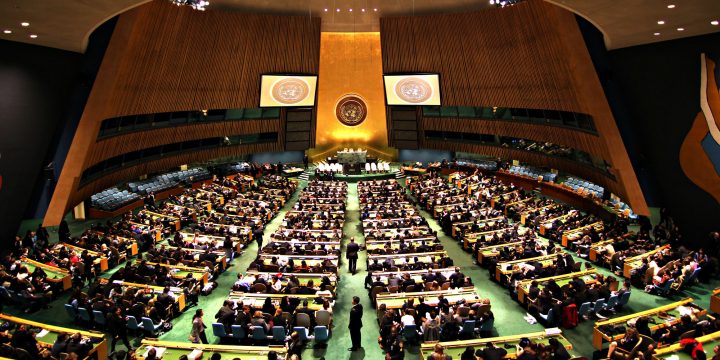Today, negotiations on a treaty to ban nuclear weapons in international law began in New York. The treaty is being negotiated based on the recognition that the humanitarian impact of nuclear weapons use is morally unacceptable and that the weapons themselves represent a significant risk to human security.
As the conference opened, ICAN Executive Director Beatrice Fihn said, “The treaty will finally ban weapons designed to indiscriminately kill civilians, completing the prohibition of weapons of mass destruction.”
With the support of more than 120 countries, the UN General Assembly approved the negotiation of a treaty banning nuclear weapons in October of 2016. The UN action followed a series of fact-finding conferences on the unacceptable humanitarian cost of any nuclear weapons use and the role a prohibition on nuclear weapons would have in strengthening international humanitarian law. It was the conclusion of the General Assembly that every state has security interest in preventing nuclear weapons use.
It is expected that the treaty will legally bind parties from using, possessing and developing nuclear weapons, and assisting others in those activities. It is expected to work in concert with the existing regime of nonproliferation and disarmament agreements, strengthening the norm against indiscriminate weapons and providing countries with a method to meet disarmament obligations.
“The treaty will have an impact, even on countries which fail to participate, by setting international norms of behavior and removing the political prestige associated with nuclear weapons,” Fihn added.
With the risk of nuclear detonation higher than at any time since the end of the Cold War, this treaty is an urgent priority for all countries that believe in a future free of nuclear weapons. Past disarmament efforts demonstrate that the most effective step towards the elimination of a class of weapons is prohibiting them under international law. The complete elimination of nuclear weapons by the states that posses them will not happen immediately, but the increasingly complex international security environment and the proliferation of weapons of mass destruction highlights the need to bring an end to the nuclear age.










